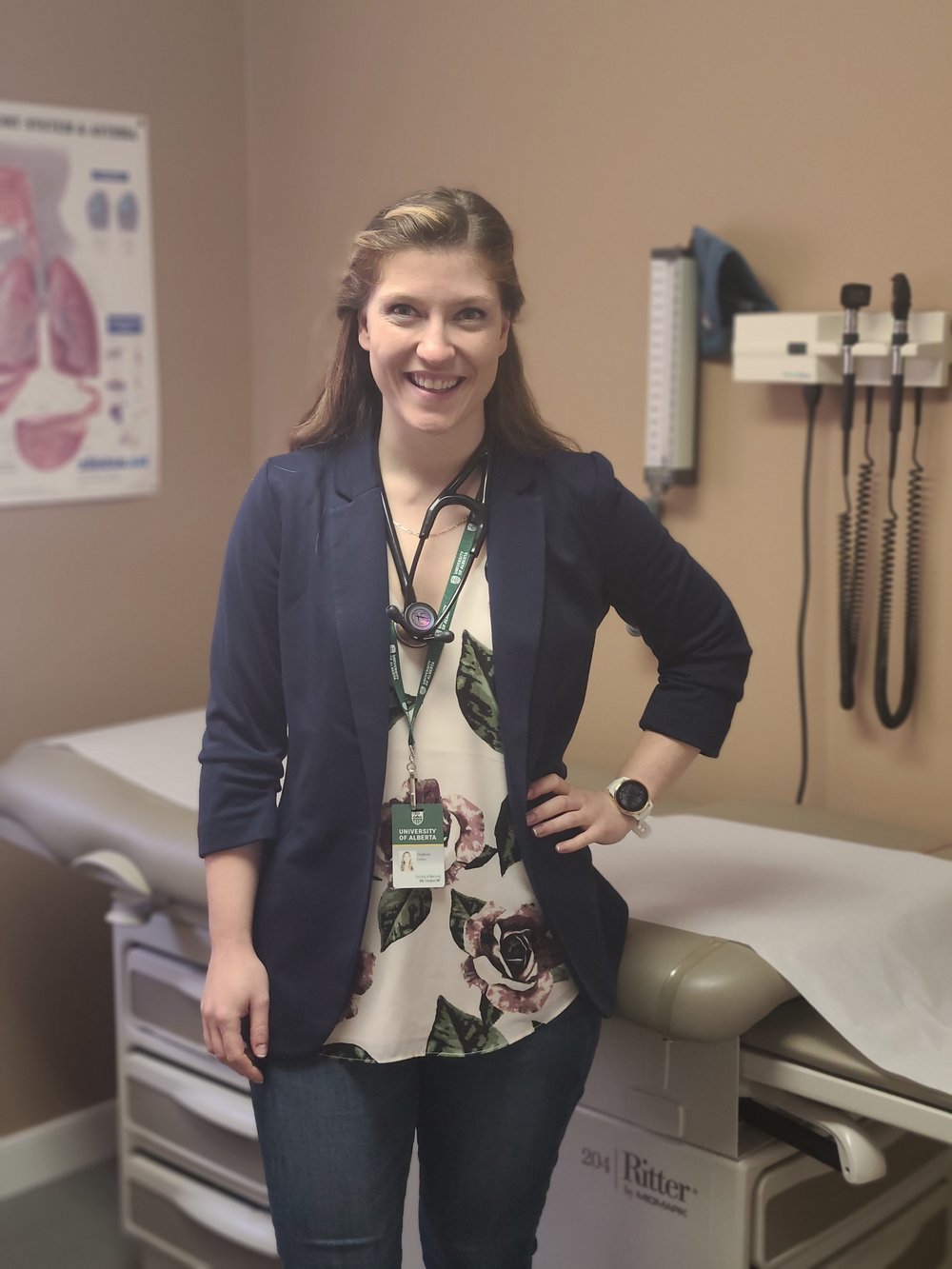Stephanie Corner: Addressing the Gaps in Rural Nursing
Stephanie Corner: Addressing the Gaps in Rural Nursing
Rural nurses face a diverse range of challenges and need additional educational support; however, it isn’t always available.
Stephanie Corner, 2022 Sisters of Service Scholarship recipient wants to change that.
Corner has experienced the vast challenges and rewards that come from working as a registered nurse (RN) in Edson, Alta.—a rural town two hours west of Edmonton.
She’s worked in Edson since completing her Bachelor of Nursing degree in 2018, where she fell in love with the profession but said she’s continuously immersed herself in education to try and keep up with the diversity of rural practice. And while she said her degree prepared her to be a nurse, it didn’t address the challenges of rural nursing that, in her words, push the boundaries of registered nursing practice.
“It left me wanting more responsibility, autonomy, and scope of practice so I decided to pursue my master’s degree to become a family and all ages nurse practitioner.”
In August 2021, Corner enrolled in the Master of Nursing-Nurse Practitioner (MN-NP) program at the University of Alberta, with her research focusing on the educational resources needed for rural nurses to succeed.
Corner explained that receiving the Sisters of Service Scholarship from the Alberta Registered Nurses Educational Trust (ARNET) lessened the financial burden of pursuing her MN-NP degree and allowed her to focus on the most important thing: Learning.
Noticing a Gap
Before moving back to Edmonton to work on her MN-NP, Corner worked in acute care, emergency, and labour and delivery at a hospital in Edson.
She explained that given the fast-paced landscape of rural nursing, pursuing extra education in order to properly address the diverse needs of patients is crucial. However, in rural settings, continuing education is not always easily available.
“Most units have their own dedicated clinical educator,” said Corner, reflecting on her experience in Edson. “Our entire hospital only has one clinical educator full-time.”
Wanting to make a change and advocate for rural nurses, Corner decided to focus the capstone of her MN degree on the educational needs of rural nurses entering practice.
Advocating for Education
Working as a rural RN right after graduation was overwhelming for Corner, especially when comparing it to her undergraduate experience where she was completely supported by instructors.
Having access to more education and training on the job was crucial for Corner’s success, and something she advocates heavily for.
“Something I can make a difference in is to have rural nurses feel like they are being heard,” she said.
“I want to try and identify what educational strategies work. If they [rural nurses] feel confident and competent, they may have increased job satisfaction as well.”
Inspired to Make Change
Corner explained that learning that the Canadian Association for Rural and Remote Nursing (CARRN) has found that educational nursing programs do not capture rural curriculum content was a “light-bulb” moment for her.
“When I learned this, I knew I needed to explore more and see what’s working, and what we can do better.”
When Corner found out she won the Sisters of Service Scholarship, she explained that she had no idea the Sisters were working in her community in Edson from 1926-1997. She was amazed to read their history and learn that one of the Sisters was a coordinator for the Alberta Rural Development program.
“Even back then there were gaps in rural care—and there still are. It’s cool to contrast my hopes for my project in improving and advancing rural nursing education over time,” she said.
Corner is excited to focus her research in this area and hopes that her work can help other rural nurses pursue the educational training needed to help them feel as confident as possible.

